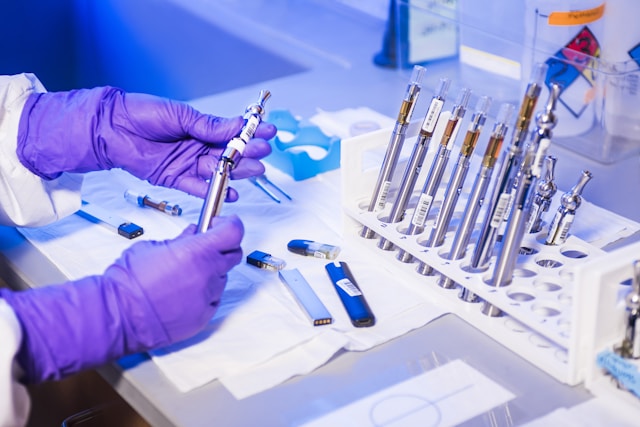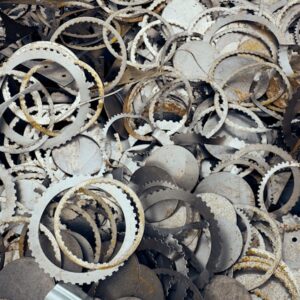Key Takeaways:
- Insight into laboratory management consultants and their significance.
- Technological innovations that drive lab efficiency.
- Data analytics as a transformative force in laboratory operations.
- There is a vital need for standardization and compliance in lab processes.
- The profound impact of ongoing training on lab management.
- The importance of sustainable practices in lab operations.
- Navigating the evolving landscape of laboratory management.
- How external quality assessments reinforce lab excellence.
- Empowering progress through collaboration within the scientific community.
Table of Contents:
- Understanding the Role of Laboratory Management Consultants
- Incorporating Cutting-Edge Technology for Lab Efficiency
- Data-driven Decision Making: The Backbone of Modern Laboratories
- Implementing Standardized Processes for Consistency and Compliance
- Investing in Ongoing Staff Training and Development
- Addressing the Challenges: Waste Reduction and Sustainability in Laboratories
- Future Trends: The Evolving Landscape of Laboratory Management
- The Impact of External Quality Assessment on Ensuring Lab Excellence
Laboratories are pivotal hubs of discovery and diagnostics in the labyrinthine corridors of scientific exploration and healthcare. Excellence in laboratory management thus becomes paramount for institutions that strive to serve the twofold purpose of advancing knowledge and ensuring accurate patient care. The complexities of modern labs necessitate a multifaceted approach, orchestrating a symphony of innovation and unwavering classic methodologies. A key aspect in modernizing laboratory practices and enhancing their prepared landscapes is the thoughtful selection of compiled instrumentation, which includes the informed decision-making process behind buying laboratory equipment Hazard KY. These decisions lay the groundwork for a lab’s unflagging standards, culminating in a seamless fusion of safety and precision that ultimately dictate the laboratory’s operational efficacy and efficiency.
Understanding the Role of Laboratory Management Consultants
Laboratory management consultants are the unseen architects who meticulously construct the framework predicting lab efficacy. These navigators of the esoteric realm of laboratory science offer tailored solutions that address the nuanced needs of an institution’s lab operations. This assistance can take many forms, including optimizing workflow, upgrading quality control measures, and integrating new technologies. When laboratories harness the strategic understanding of these consultants, they gain an eagle-eyed perspective that foresees challenges and fosters opportunities for growth and refinement within their operations.
Incorporating Cutting-Edge Technology for Lab Efficiency
One cannot speak of excellence in laboratory management without lauding the revolutionary impact of technological advancements. The digitization of processes such as automated data entry, integrated systems for communication, and sophisticated analytical tools mark the dawn of a new era in lab operations. For instance, introducing a Laboratory Information Management System (LIMS) propels a laboratory into futuristic realms where errors are defeated and data integrity is the new status quo. The assimilation of such high-tech solutions enhances the efficiency of lab processes and massively reduces turnaround times, freeing up invaluable resources for further exploration and innovation.
Data-driven Decision Making: The Backbone of Modern Laboratories
Data is the currency of the new age, and laboratories increasingly depend on collecting, analyzing, and interpreting mass amounts of information to streamline operations. The data-driven laboratory does not merely survive; it thrives on the predictive insights garnered from meticulously analyzed datasets. Within these robust datasets, patterns emerge, inefficiencies are identified, and critical evidence-based decisions are forged. The laboratories adopting a data sagacity culture position themselves on the vanguard, leading the charge toward innovation and pre-eminence in scientific circles.
Implementing Standardized Processes for Consistency and Compliance
Amidst this talk of innovation, one must recognize the significance of steadfast standard operating procedures (SOPs). Laboratories are controlled environments where every action and outcome must be reproducible and reliable. The consistency of results, pivotal for the laboratory’s reputation, hinges on detailed protocols that leave no room for ambiguity. These written SOPs resemble a map for compliance with exacting regulatory standards and high-stakes quality control. Adherence to such guidelines fortifies the laboratory’s commitment to excellence, mitigates the eventuality of investigative deviations, and safeguards the validity of its findings.
Investing in Ongoing Staff Training and Development
The personnel breathes life into a laboratory’s operations, transforming static equipment and inert specimens into dynamic narratives of discovery. Hence, an investment into expanding their skill set and expertise does not merely enhance an individual’s capability; it transmutes the very essence of the laboratory’s quality of service. Continuous professional development is the bedrock upon which laboratories must build a culture of excellence. Educational programs, workshops, and targeted training sessions ensure the staff is not just up-to-date but ahead of the curve – a curve that defines progressive laboratory management and transformative research outcomes.
Addressing the Challenges: Waste Reduction and Sustainability in Laboratories
As guardians of scientific integrity, laboratories are responsible for minimizing their environmental impact. The conversation around waste management and sustainability in laboratory settings has recently been amplified. Practices such as judicious chemical usage, proper waste segregation, and implementing green technologies are not just ethical imperatives but strategic factors contributing to reducing operational costs. Laboratories that adopt eco-conscious workflows exemplify a modern approach that respects both budget and the planet, setting a precedent for responsibility in scientific endeavors.
Future Trends: The Evolving Landscape of Laboratory Management
The sands of time wait for no one, and the health sciences landscape is particularly transient. Laboratories that wish to lead must anticipate and prepare to accommodate the waves of change. From personalized medicine powered by genetic profiling to artificial intelligence-piloted diagnostics, what was once the lore of science fiction is now a flesh-and-bones reality, vigorously forging the future of laboratory management. Staying conversant with these advancements is non-negotiable for leaders who envision their laboratories at the forefront of the scientific expedition.
The Impact of External Quality Assessment on Ensuring Lab Excellence
The calibration of a laboratory’s precision and accuracy often comes from external quality assessment (EQA). Notable among such evaluations is proficiency testing, wherein laboratories are allowed to assess their performance against an extensive cohort. These EQAs are essential for the calibration of instruments, refinement of test methods, and an overall enrichment of laboratory validity. Performance in proficiency testing can serve as a barometer of a laboratory’s operational excellence, highlighting strengths to be celebrated and exposing weaknesses to be addressed. The insights gleaned from these benchmarks are invaluable tools in the constant quest for excellence that characterizes the domain of laboratory management.




